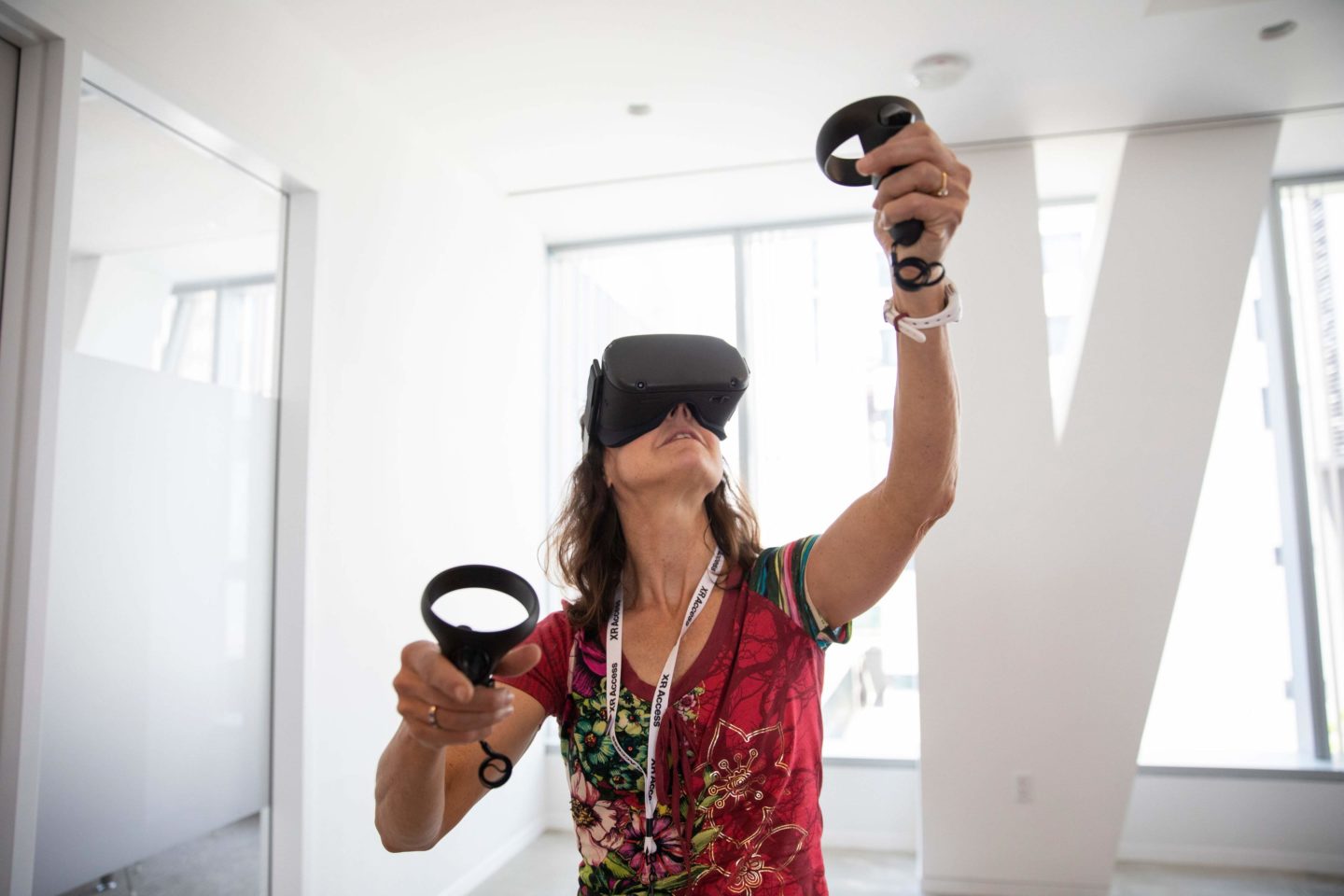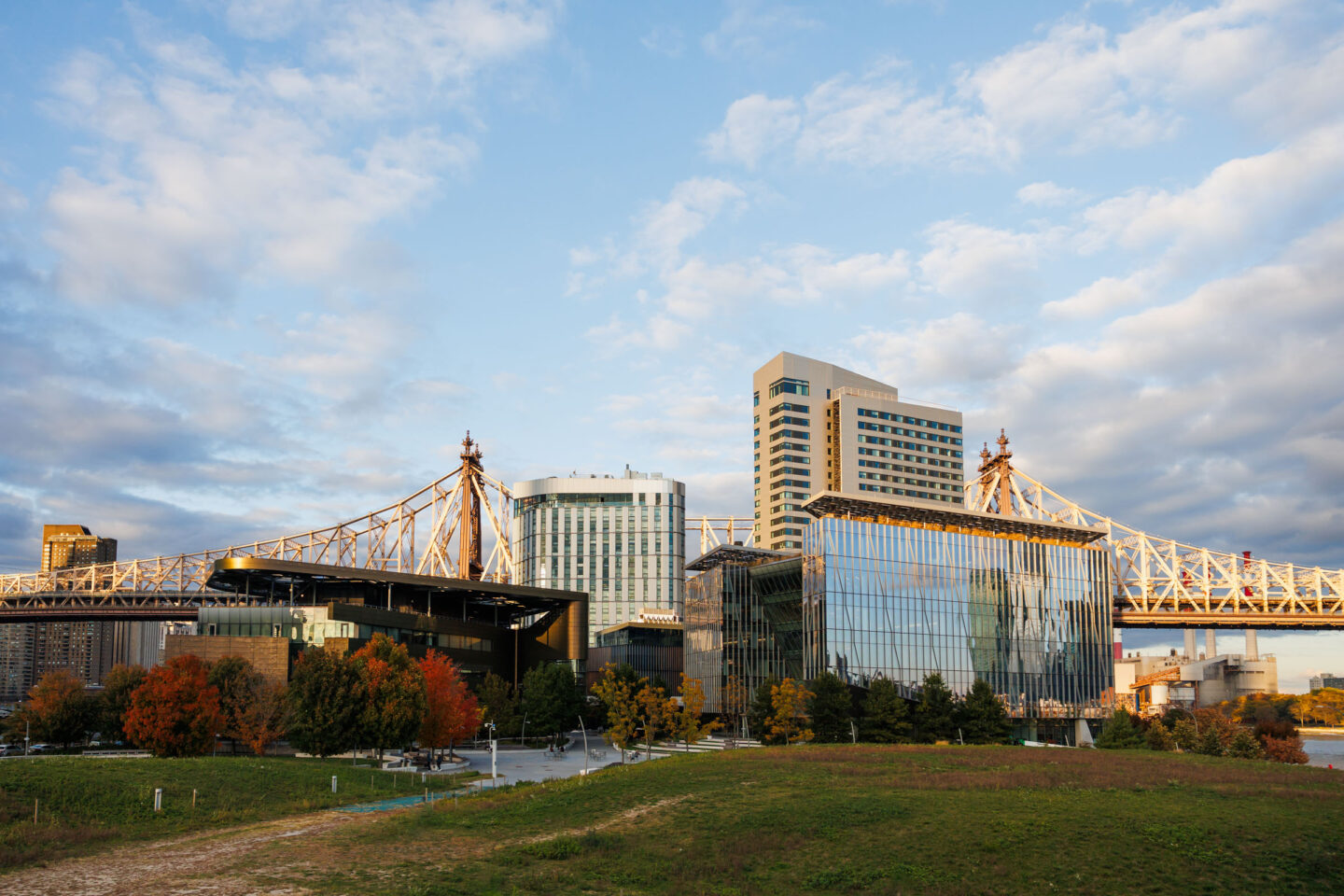Cornell Tech Hosts Symposium to Push Mixed Reality Accessibility Forward
Categories

The popularity of virtual, augmented, and mixed reality (XR) technologies has risen dramatically in recent years. As these technologies become more widely available, it is increasingly important for the creators of XR content, devices, and software to ensure that their products are accessible for everyone — especially those with disabilities. The XR Access Symposium, co-organized by Shiri Azenkot, assistant professor at the Jacobs Technion-Cornell Institute, and sponsored by Cornell Tech’s Connected Experiences Lab and Verizon Media Group, was held to bring both user and industry concerns into the spotlight.
Comprised of over 120 leaders working to create accessible technology, the event included a number of talks by speakers from diverse tech and disability advocacy backgrounds, attendee working sessions, and demonstrations from leading brands covering an array of the newest XR technologies. Intensive working groups focused on topics such as defining what accessibility looks like in XR, creating inclusive XR technologies, and figuring out frameworks for creating even more accessible content in the future.
Attendees of the symposium included a mix of tech industry and academic institutions. Facebook/Oculus, Magic Leap, Microsoft/HoloLens, RYOT Studios, and Google attended the symposium and provided demos of their current and upcoming products aimed toward increased user accessibility. Academic institutions such as Columbia University, Carnegie Mellon University, Gallaudet University, and RIT joined Cornell Tech in the conversation, as well as individual academics from across the globe. Additionally, panelists covered a wide range of backgrounds and expertise, including computer scientists, accessibility advocates, and users with disabilities.
The symposium marked the beginning of a cross-disciplinary collaboration that the organizers hope will result in concrete accessibility standards, new technical prototypes, and frameworks for making other emerging technologies more accessible. Participants anticipate using their new ideas to bring accessibility to their XR products and research.
Click here to see the materials from this year’s conference and learn more about the event.
Media Highlights
Tech Policy Press
Content Moderation, Encryption, and the LawRELATED STORIES





